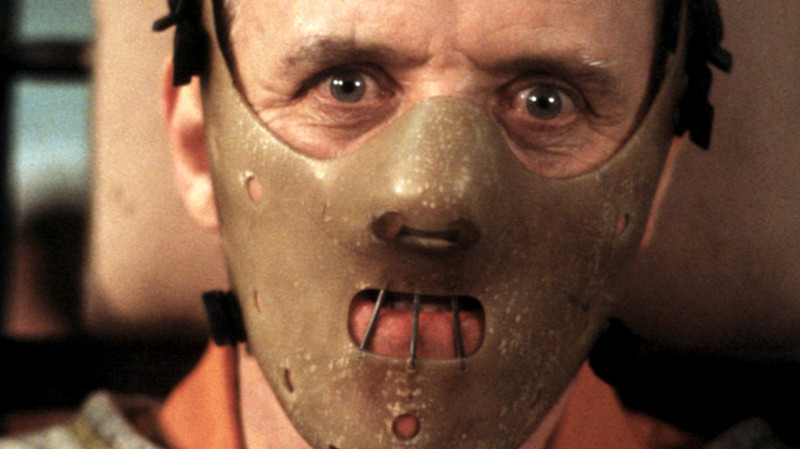
People don’t win Oscars by the amount of time they’re on screen but because of their performance. Movies are a sum of their parts that make up the whole, and sometimes an entire plot hinges on the actions of just a single character, no matter how small their part may be in the overall film.
However,there have been some performances in the film history whose blink-and-you’ll-miss-it appearances in a film have won awards. While some are for smaller supporting roles, other have had a brief time on screen that amazingly have won Best Actor. If you were to sit down and watch a compilation of all of these, it would run only 139 minutes, or just over two hours–and every one of them is an Oscar-winning performance.
10. Anthony Quinn, Lust for Life (23 minutes)
Best Supporting Actor
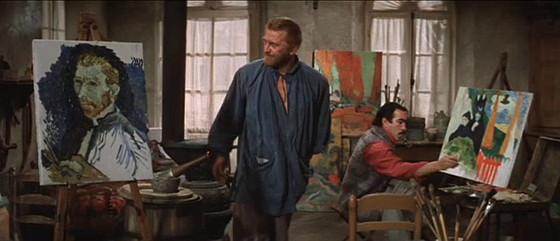
Often (incorrectly) cited as the shortest performance to have won a Best Supporting Actor Oscar, Anthony Quinn as Paul Gauguin in 1953’s Lust For Life is brief if you consider that he’s only present for 19% of the film’s running time–and even then only heavily featured in the third act. Although Kirk Douglas, in an intense performance as the troubled artist Vincent van Gogh, is the focus of the film, it is the supporting characters around this half-mad figure that propel the story forward.
Just as in van Gogh’s biography, Gauguin enters the artist’s life as a potential stabilizing force for the unstable Impressionist. Instead, as Quinn performs the character, Gauguin becomes an antagonist of sorts in van Gogh’s life, pushing his already fragile mental state into collapse. Quinn performs the character as a subtle sort of villain, whose critical attitude and domineering personality conflicts with van Gogh’s quiet, but dependant, character.
How the confusion over Quinn’s screen-time started is unclear (it’s often cited as short as 8 minutes)–perhaps because he doesn’t enter the movie until later and shares only a few scenes with van Gogh before storming out of his life. But however brief the performance, it’s the impact on the story overall that wins awards, and being the final straw that pushes a man into mental collapse was impactful enough to have won Quinn the Oscar.
9. Jared Leto, Dallas Buyers Club, (21 minutes)
Best Supporting Actor

As an example of how an impactful performance can outshine a lengthy one in a film, consider Jared Leto’s turn as an HIV-positive trans woman in Dallas Buyers Club.
The film chronicles the life of roughneck rodeo cowboy Ron Woodruff (Matthew McConaughey) after he is diagnosed with HIV and his efforts to create a buyers club–an organization that pools members’ money to boost their purchasing power–to provide reliable medicine for HIV/AIDS patients in 1980’s Texas. Leto’s character, Rayon, functions in the plot as a humanizing face that throws Woodruff’s homophobia into question.
Leto’s performance was a brave choice by the actor, who plays against type to portray a minority heavily marginalized in society–particularly in the time period the film was set. And although only on-screen for only 18% of the film’s runtime, his character’s impact on the protagonist marks a significant change in Woodruff’s attitudes towards members of the LGBTQ population.
Despite his limited screen time, Leto’s performance was significant enough to be nominated for Best Supporting Actor at the 86th Academy Awards, which he handily won.
8. Lee Grant, Shampoo (18 minutes)
Best Supporting Actress
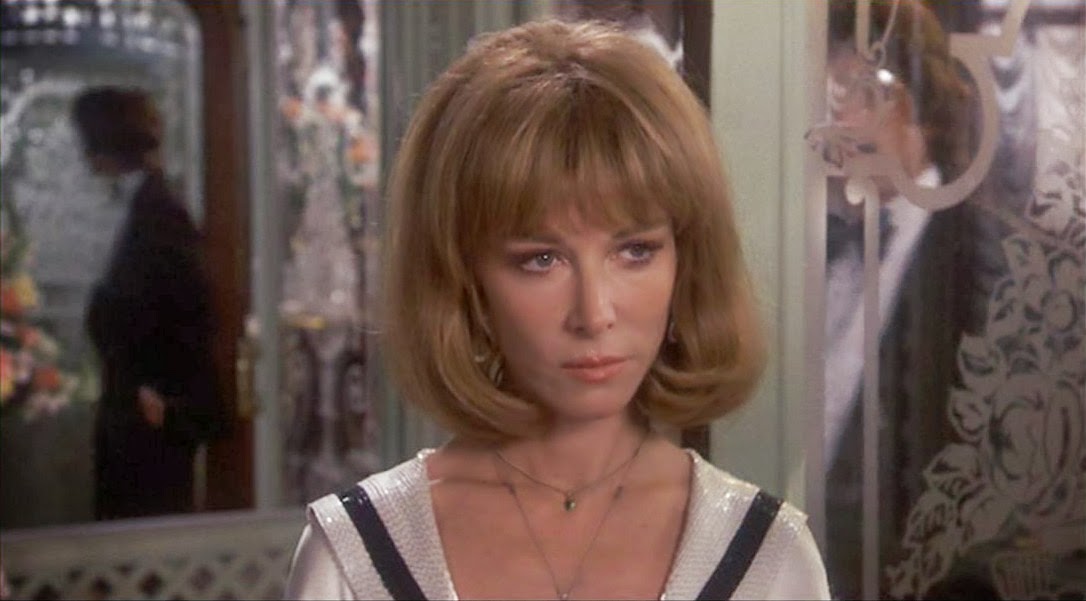
Although not well-remembered in present day, 1975’s Shampoo was a hit both commercially and with critics. Starring Warren Beatty, the film is set on the eve of President Nixon’s election in 1968 and details the life of a promiscuous and successful hairdresser (Beatty) in Beverly Hills as his chaotic love life spirals out of control.
With a well-known (at the time) cast besides Beatty (including Julie Christie and Goldie Hawn), and solid critical support, Shampoo received four Academy Award nominations, including Best Supporting Actress.
But it was neither Christie or Hawn who were nominated, but veteran actress Lee Grant, who played one of Beatty’s characters’ mistresses. And while supporting roles usually receive less screen time than leading ones, Grant only appeared in 16% of Shampoo’s running time.
While her competition in the category that year included other short performances (there were two nominations for Nashville, in which said actresses’ appearances on-screen were also brief), in comparison that film is a sprawling three-hour long ensemble piece while Shampoo’s main cast consisted of five main characters and various supporting players.
But as mentioned in the intro, the Academy Awards recognizes performances, not their length, which is perhaps why Grant’s concise Shampoo’s performance won the category over those in Robert Altman’s gigantic and complex film.
7. Anthony Hopkins, Silence of the Lambs (16 minutes)
Best Actor
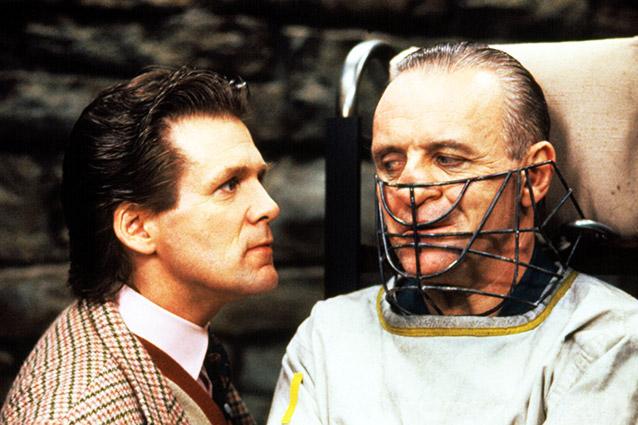
So far, we’ve only recounted brief performances that were awarded Best Supporting Oscars, which somewhat makes sense due to the nature of supporting roles. But Anthony Hopkins’ win as the terrifying Hannibal Lecter in Silence of the Lambs is the second-briefest performance to have won Best Actor in Academy Awards history (the briefest is a little later in the list).
What makes Hopkins’ brief appearance in the film so remarkable is that while watching the film, you get the impression that he’s in the film for much longer. No doubt a comment on his memorable performance, this is also due to the pacing and editing of the film, which strategically places Hopkins’ scenes throughout the running time of the film, giving the illusion that he’s a constant presence instead of appearing in just 14% of the film’s running time.
6. Anne Hathaway, Les Miserables (15 minutes)
Best Supporting Actress
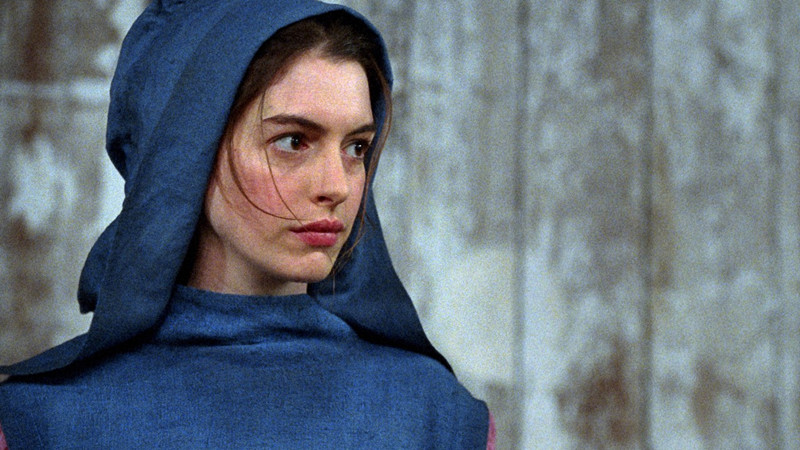
One could argue that the most important function of a supporting character is to help facilitate the plot. Although a lead character is the central focus of a film, their purpose is to react to the forces around them; whether ally, enemy, or love interest, a supporting character is there to egg the protagonist on, try to impede their progress, or motivate them into action.
In the sweeping work Les Miserables, the musical adapted from Victor Hugo’s novel, Anne Hathaway’s character Fantine functions as both a representation of how the unjust social system in France in the 19th century could destroy a person’s life and as the mother of a character that would play a significant role in the rest of the story.
About that first part: Hathaway’s performance is limited to just 15 minutes of on-screen time depicting Fantine’s young life, once full of promise, as she is seduced, impregnated, and then abandoned by a soldier, is fired from her seamstress job, turns to prostitution to keep supporting her daughter, is imprisoned, and finally dies–all while singing.
It’s a difficult performance and Hathaway does a memorable job in summarizing the cruelty that the oppressive economic and social model of France in the 19th century inspired in its subjects towards each other. Her tearful rendition of “I Dreamed A Dream” accomplishes the difficult task of singing on-key while sobbing, and Hathaway’s emotional performance won Best Supporting Actress–not bad for a character that only appears in 9% of the film’s running time.